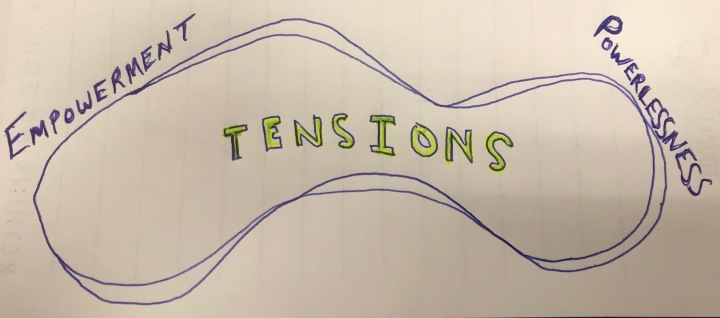Empowerment Triggers The Approach System
 There has been a great deal written about student agency, student choice, and empowerment. In fact, just yesterday I was working with teachers on how to empower student in such a way to get to a self (student) managed classroom. Student agency and choice refer to learning by doing activities that are meaningful and relevant to learners, driven by their interests, chosen by the student, and often student (self) initiated. As a teacher, I loved giving students a stake in choosing from opportunities provided for them; or many times letting them come up with options. These opportunities might include giving the choice between doing a project, making a presentation, writing a paper, creating a product, or other activities. This ability to choose, or have agency, empowers the students, which leads to greater investment of interest and/or motivation.
There has been a great deal written about student agency, student choice, and empowerment. In fact, just yesterday I was working with teachers on how to empower student in such a way to get to a self (student) managed classroom. Student agency and choice refer to learning by doing activities that are meaningful and relevant to learners, driven by their interests, chosen by the student, and often student (self) initiated. As a teacher, I loved giving students a stake in choosing from opportunities provided for them; or many times letting them come up with options. These opportunities might include giving the choice between doing a project, making a presentation, writing a paper, creating a product, or other activities. This ability to choose, or have agency, empowers the students, which leads to greater investment of interest and/or motivation.
 Like I said, I used student agency for years as a teacher and promote it as a major tenant of project based learning. It seems that this is really brain-based. Yesterday, I finished reading the great book Presence: Bringing Your Boldest Self To Your Biggest Challenges by Amy Cuddy. While this was not an education book, the principles of empowerment and powerlessness triggers that apply to our presence as a leader, also apply to the way we engage students.
Like I said, I used student agency for years as a teacher and promote it as a major tenant of project based learning. It seems that this is really brain-based. Yesterday, I finished reading the great book Presence: Bringing Your Boldest Self To Your Biggest Challenges by Amy Cuddy. While this was not an education book, the principles of empowerment and powerlessness triggers that apply to our presence as a leader, also apply to the way we engage students.
In the book, Cuddy explained the approach and inhibition systems of the brain. This explanation came from the 2003 study of psychologist Dacher Keltner. The approach system is made up of regions in the brain that promote curiosity, being adventurous, and trying new things. The inhibition system, promotes cautious behavior. Too much of this causes us to see threats where others recognize opportunities. In other words, it stifles us. Think about these two systems both from a leadership standpoint and a student engagement perspective.
Keltner argued that empowerment triggers the approach system. In other words, if we believe we are empowered we are able to be more curious, adventurous, and willing to try new things. Doesn’t this sound like how we would like our students to be every moment of every day? Conversely, Keltner posited that powerlessness triggers the inhibition system. As was explained earlier, this causes cautiousness. Think about this from a leadership or educational perspective. When we empower others and give them autonomy this triggers our approach system, and contrarily when we take power and agency away and add constraints we trigger inhibition. Remember, power is the ability to change something. Do we not want our students and team members to be in a position to do this?
Bottom-line: the approach system will respond to rewards and opportunities and the inhibition system responds to constraints, threats, and punishments. Really if you think about this it is pretty simple. These two systems in our brain exert powerful influence over our actions, motivations, and emotions. How are you empowering? How are causing powerlessness? It could be as simple as giving student agency removing constraints, or not have having team members go through a bunch of compliance hoops of approval. Let’s keep these triggers in mind as we navigate 2020.
[…] I have been spending some time contemplating Oscar Wilde‘s thoughts on art. I love all kinds of art and consider myself an artist in terms of being creative and imaginative. I am definitely more of an artist than technocrat. I always say there is no bad art. You can refute that if you like, but Wilde and I would have been in agreement that artists should not be interested in seeking approval or creating art for demand. The instant artists or we artistic leaders begin to seek others approval we lose our creative juices. Think about what it is like when you are working on something and have to keep getting approval. The idiot needing the approval command and control gratification is stifling your creativity and ability to innovate. I recently wrote about this is in Empowerment Triggers The Approach System. […]
LikeLike
[…] Empowerment Triggers The Approach System […]
LikeLike